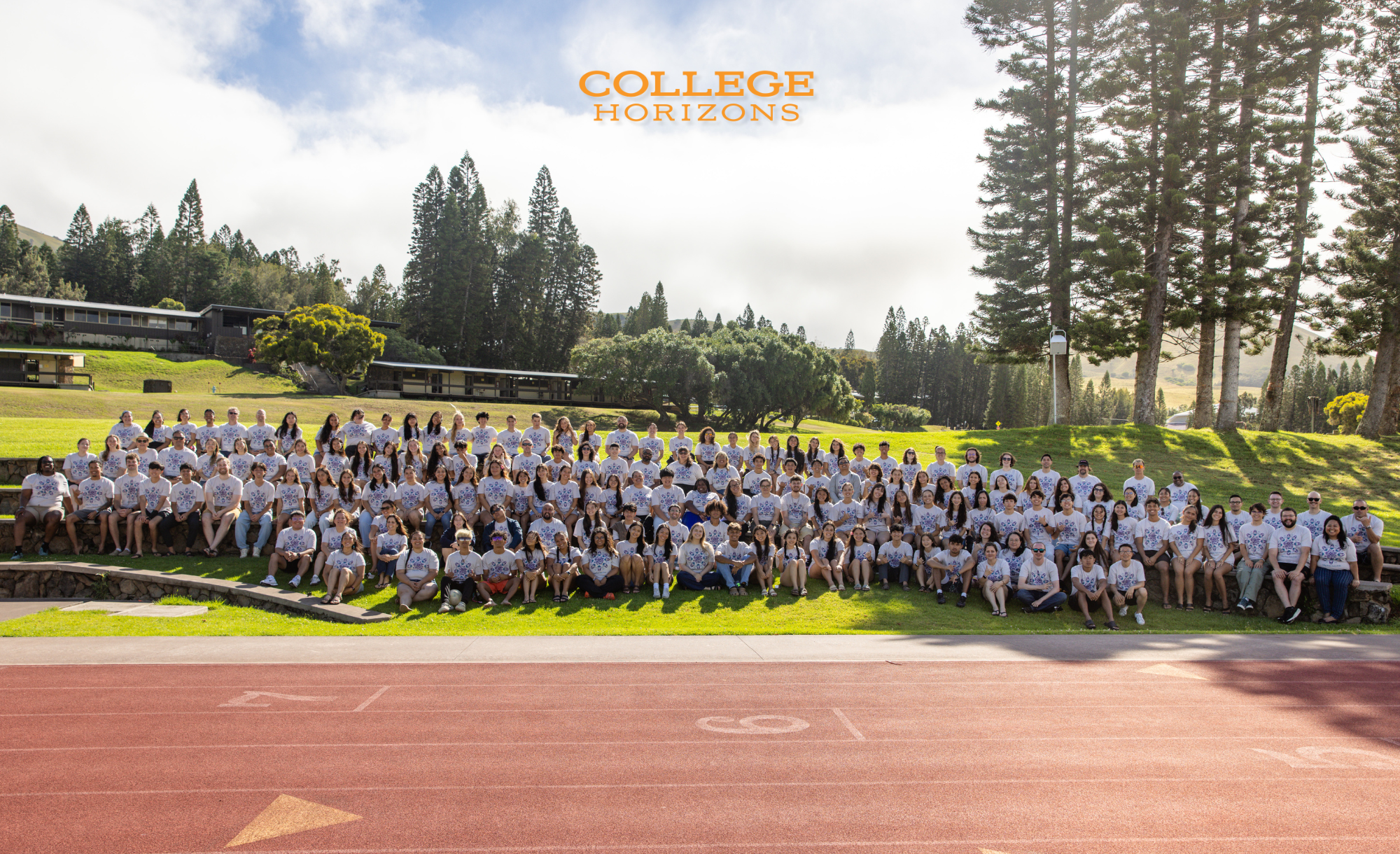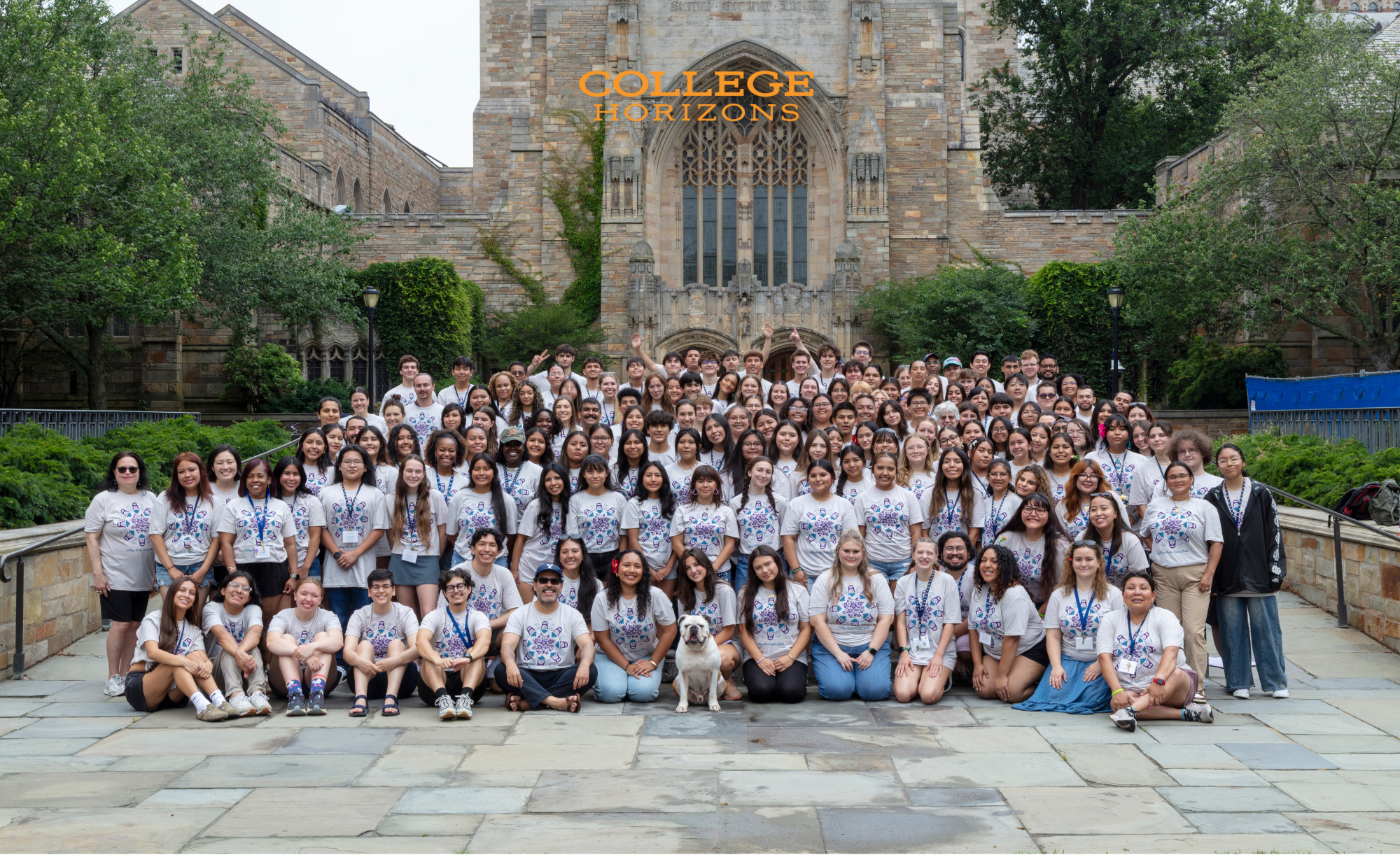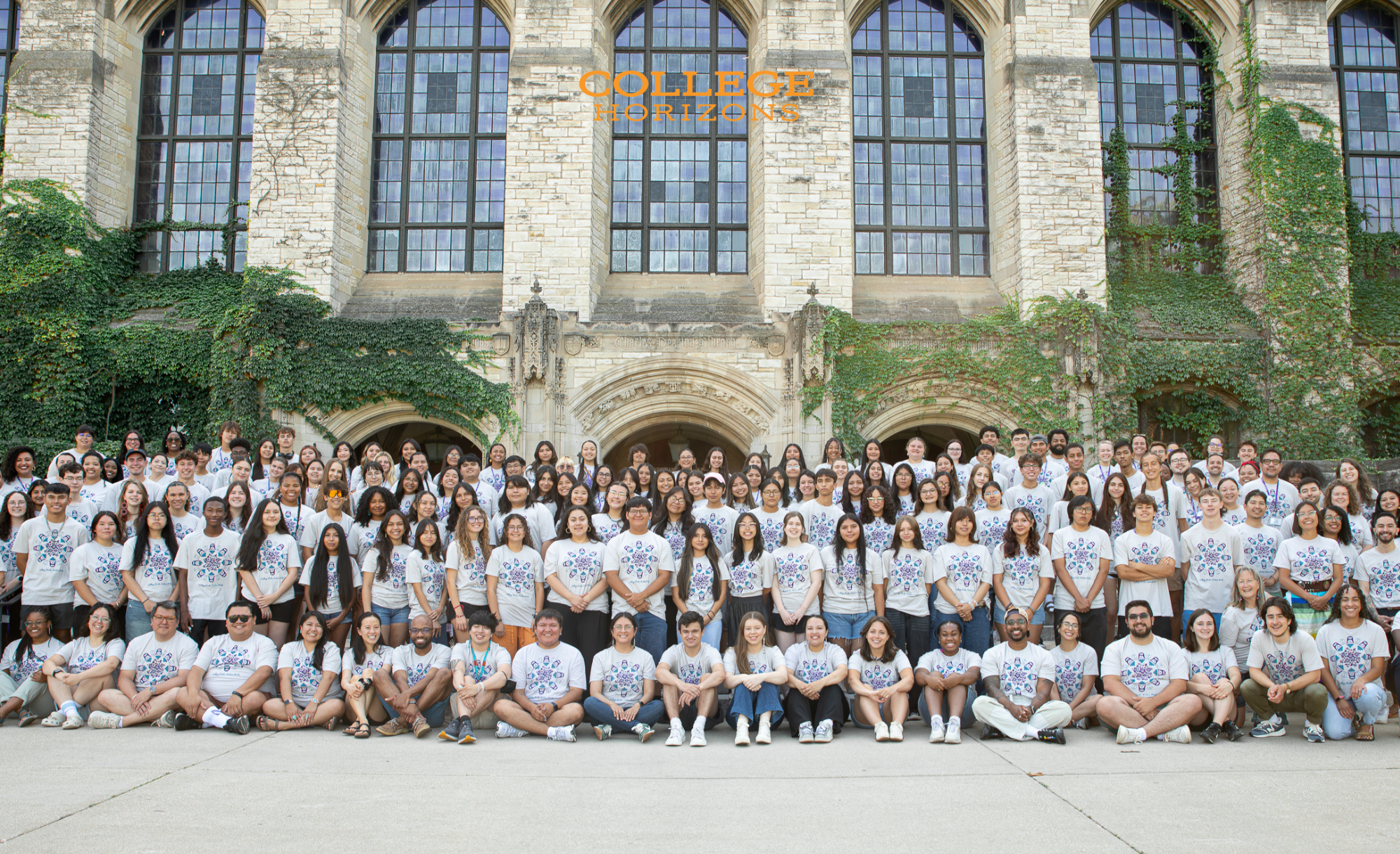Previous Host Sites
Our sincere and ongoing thanks to all the institutions who have hosted us since our founding in 1998!
2025 Host Sites
Hawaiʻi Preparatory Academy
A small island where big things happen
Founded in 1949, Hawai‘i Preparatory Academy is a co-educational, college-preparatory, day and boarding school that serves kindergarten through 12th grade, plus a postgraduate year. Here on Hawai‘i Island, our students live and study within rare landscapes, precious ecosystems, and a mix of world cultures. We embrace these attributes to create unique signature programs, research partnerships, and growth opportunities that make HPA a school like no other. We exist to empower students with a sense of purpose, and to ensure they have strong core values and the real-world skills to explore and reinvent that purpose over a lifetime.
Website: https://www.hpa.edu/
Yale University
Yale University acknowledges that Indigenous peoples and nations, including Mohegan, Mashantucket Pequot, Eastern Pequot, Schaghticoke, Golden Hill Paugussett, Niantic and the Quinnipiac and other Algonquian speaking peoples, have stewarded through generations the lands and waterways of what is now the state of Connecticut. We honor and respect the enduring relationship that exists between these people and nations and this land. Yale College, our undergraduate college within Yale University, is medium-sized (6,500) with over 85 interdisciplinary majors in a liberal arts environment located in New Haven, Connecticut. We believe that “Yale is &,” meaning that our students are curious and excited to embrace our many academic, extracurricular, and social opportunities, not limiting themselves to just one thing. Students can do research in more than 1200 labs across campus, and participate widely in international experiences, internships and fellowships. There are currently approximately 200 students who identify as Indigenous, and a majority of these students are active with our Native American Cultural Center (NACC). Established in 1993, the NACC is a space for Native students to gather for events, find support from Peer Liaisons, or host meetings for student groups like the Yale Chapter of the American Indian Science & Engineering Society (AISES), which recently received the Stelvio J. Zanin Distinguished Chapter of the Year Award at the 2023 AISES National Conference. On our campus, a majority of students identify as a person of color, and 20 percent of the population is a first generation college student. Affordability for everyone is a goal that means a lot to us, and we achieve this through our generous need-based financial aid, which meets 100% of demonstrated financial need for all without loans. We are also a proud QuestBridge Partner. We cannot wait to see how you embrace the idea of & here!
Admissions: https://admissions.yale.edu/
Campus Visits:
Financial Aid: https://finaid.yale.edu/applying-aid/prospective-new-students
How to Apply: https://admissions.yale.edu/first-year-application-process
Native/Diversity Programming: Yale Native American Cultural Center (@yalenatives)
New Admission Updates: Yale’s testing policy
Northwestern University
Northwestern is a community of learners situated within a network of historical and contemporary relationships with Native American tribes, communities, parents, students, and alumni. The Northwestern campus sits on the traditional homelands of the people of the Council of Three Fires, the Ojibwe, Potawatomi, and Odawa as well as the Menominee, Miami, and Ho-Chunk nations. Founded in 1851 in Evanston, IL, Northwestern University is located on a lakeside campus just three miles north of Chicago, one of the world’s most dynamic cities. In 2014, the Native American Inclusion Initiative was founded with the mission to create spaces where Indigenous people are heard, their identities are honored, and they can be successful members of Northwestern as well as good tribal and community citizens. Most notably, the initiative has facilitated the creation of the Center for Native American and Indigenous Research (CNAIR), a minor in Native American and Indigenous Studies, and the hiring of Indigenous staff to support campus-wide advocacy, community engagement, student support, and recruitment.
With a population of 8,000 undergraduates, Northwestern puts a strong emphasis on undergraduate teaching. Our student-to-faculty ratio is 6:1, and nearly 80% of courses enroll under twenty students. We also put a strong emphasis on affordability and accessibility, meeting 100% of every student’s demonstrated financial need with loan-free renewable scholarships.
Northwestern’s six undergraduate schools offer 150+ programs of study in arts and sciences, engineering, communication, journalism, education and social policy, and music. Across our schools, 40+ faculty engage in teaching and research around Native American and Indigenous Studies with 12 identifying as Indigenous. Our quarter system enables interdisciplinary exploration and multiple academic concentrations.
Over 500 undergraduate organizations, Big 10 athletics, $3.5 million in undergraduate research funding, 150+ study abroad opportunities, cutting-edge innovation centers, and internships across industries complement classroom opportunities to foster scholarly development, professional experience, leadership, and personal growth.
Admissions: https://admissions.northwestern.edu/
Campus Visits: https://admissions.northwestern.edu/visit/visit-campus/
Financial Aid: https://admissions.northwestern.edu/tuition-aid/
How to Apply: https://admissions.northwestern.edu/apply/
Native/Diversity Programming: https://cnair.northwestern.edu/about/
New Admission Updates: https://admissions.northwestern.edu/apply/requirements.html
2024 Host Sites
University of Pennsylvania
Philadelphia occupies the traditional homelands of the Lenni-Lenape. The University of Pennsylvania acknowledges and expresses gratitude to the indigenous people of this land, past and present, for the opportunity to live and learn on Lenapehoking, land of the Lenape.
Penn is a place that’s known for firsts. For greats. For sparking revolutionary ideas. For Ivy League tradition and Philly spirit. And for nurturing innovative thinkers who see that the way things are isn’t the way things have to be. With interdisciplinary in our DNA, and Penn’s founder, Benjamin Franklin’s spirit of reinvention inherent in all we do, we are persistent in our quest for knowledge. You’ll be in one of our four undergraduate schools: the College of Arts and Sciences, Penn Engineering, School of Nursing, and the Wharton School. But you’ll never be limited to just one thing. Penn admits and fosters a community vibrant with a breadth of experience across cultural and gender identity, academic interest, religious belief, extracurricular interest, and more. The Admitted Class of 2024, 54% of students identified as students of color, 14% international, 14% are first generation to college, and over 25 identified as Native American or Native Hawaiian. The Greenfield Intercultural Center (GIC) serves as a home base for Natives at Penn, a student-run organization representing Native American, Native Hawaiian, First Nations and Alaska Native students at Penn. GIC also houses the First-Generation Low-Income Program (FGLI), which supports the needs of those who are first in their families to attend college and/or from low-income households.
Penn practices need-blind admissions for citizens and permanent residents of the US, Canada and Mexico. Penn meets 100% of demonstrated need for admitted students through grant-based aid. Our admissions process has always relied on what we call “whole person review:” the practice of considering each student’s individual context and environment as we learn through their applications about their lived experiences, their achievements, and the academic and personal contributions they have made in their respective communities. In response to COVID-19, Penn will not require first-year and transfer applicants to submit the SAT, ACT or SAT Subject Tests for the 2021-22 application cycle. Applicants who do not submit testing will not be at a disadvantage in the admissions process.
Admissions: https://admissions.upenn.edu/admissions-and-financial-aid
Financial Aid: https://srfs.upenn.edu/financial-aid
Virtual Tour Info Session: https://admissions.upenn.edu/virtual-tour
How to Apply: https://admissions.upenn.edu/admissions-and-financial-aid/apply-for-admission
Native/Diversity Programming: https://sites.google.com/view/natives-at-penn/home
https://admissions.upenn.edu/penn-early-exploration-program-0
COVID-19 Updates: https://ask.admissions.upenn.edu/hc/en-us/articles/360040924812-COVID-19-Updates-for-Prospective-Students
University of Notre Dame
We acknowledge our presence on the traditional homelands of Native peoples including the Haudenosauneega, Miami, Peoria, and particularly the Pokégnek Bodéwadmik/ Pokagon Potawatomi, who have been using this land for education for thousands of years, and continue to do so. The University of Notre Dame was founded in 1842. We are a private, Catholic university located in South Bend, Indiana, welcoming students from all 50 states and over 100 countries. We are a mid-sized, undergraduate-focused university with 8,500 undergraduates and roughly 3,500 graduate students. Notre Dame has a strong sense of tradition, community, school spirit, and faith. With 33 residence halls that serve as the center of student social life, and over 450+ clubs and organizations, there are many places to find community at Notre Dame. We welcome students from all religious, ethnic, racial, and socioeconomic backgrounds at Notre Dame.The first-year experience focuses on finding your passions, before you officially declare your major(s) with the help of your first-year advisor. You’ll find support in your residence hall from your rector, resident assistants, and upperclassmen, and whether you need support navigating your classwork, your mental health, or connecting with your identity, Notre Dame provides resources like the Multicultural Student Programs and Services Office, the Office of Student Enrichment, and Native American Initiatives. You can view a more complete list of these resources here and if you have any questions, you can always reach out to your regional admissions counselor.
Admissions: https://admissions.nd.edu/
Financial Aid: https://admissions.nd.edu/aid-affordability/estimate-your-cost/
Virtual Tour Info Session: https://enrollment.nd.edu/portal/campus-visit
How to Apply: https://admissions.nd.edu/apply/
Native/Diversity Programming: https://nai.nd.edu/
COVID-19 Updates: https://news.nd.edu/news/notre-dame-will-continue-test-optional-policy-for-2022-and-2023-application-years/
2023 Host Sites
University of Redlands
The University of Redlands was founded in 1907 on the lands of the Yuhaviatam (Serrano) and Cahuilla. We pledge to continue honoring the original and continued land caretakers by working with their descendants and acknowledging their lands at every event and activity.
The University of Redlands has been dedicated to educating hearts and minds. We are passionate about giving students the framework to shape the rest of their lives. In an environment of academic rigor and personal responsibility, we offer a transformative education where students can blend what they learn in the classroom with life skills that will affect positive change in the world. As a small, private, liberal arts university, you can love what you find here, or find what you love and create it. That’s the Redlands tradition. Be who you are and become what you want to be. Here at Redlands, we are a community of communities. Our Native Student Programs (NSP) addresses higher education retention and access issues as they affect Native American college students, youth, and their families in Southern California and beyond. NSP seeks to create and sustain a visible and vibrant Native American culture at the University of Redlands through events and services that include volunteer opportunities, guest speakers, cultural programming and more. At Redlands, Native American students will find an Endowed Chair of Native American Studies within the Department of Race and Ethnic Studies. Native American specific courses include: Southern California Indian Relations with the Land, Native American Religions and Worldviews, Native American Women, Native American Environmental Issues. The NSP also works to: Advocate for Native students; Mentor and advises students; Organize events for local Native community on campus; Advise Native American Student Union; Assist Native freshmen and transfer applicants in college admissions and financial aid process; Directly coordinate with the Office of Admissions on outreach efforts; Provide workshops on college readiness, admissions, financial aid, etc; Organize campus tours and tribal community visits; Offer community service opportunities to work with tribal communities. We are Redlands, where curiosity finds inspiration; where creativity and innovation open doors and change lives; and where diversity enriches us all. Here at Redlands, your dreams become aspirations and your aspirations become achievements.
Admissions: https://www.redlands.edu/admissions-and-aid/first-year/
Financial Aid: https://www.redlands.edu/admissions-and-aid/student-financial-services/first-year/
Virtual Tour Info Session: https://www.redlands.edu/admissions-and-aid/first-year/visits-and-tours/
How to Apply: https://www.redlands.edu/admissions-and-aid/first-year/apply/
Native/Diversity Programming: https://www.redlands.edu/study/schools-and-centers/college-of-arts-and-sciences/native-american-student-programs/
COVID-19 Updates: https://www.redlands.edu/urready/#qn
Emory University
Emory was founded in 1836 on the historic lands of the Muscogee (Creek) Nation, 15 years after the First Treaty of Indian Springs (1821) dispossessed the Muscogee of land including both Emory campus locations. We also acknowledge that Emory University’s founders were slaveholders, and the Oxford campus was originally constructed by enslaved people. To these peoples and their descendants, we acknowledge the grave injustices inflicted on them, and we recognize the indelible mark of their labor on the creation of the university. It is a liberal arts and research university located in Atlanta, Georgia. Students can choose from 80+ majors, including dance, economics, history, business, nursing, and quantitative sciences, or create an academic plan unique to your career goals Nearly half of our students choose to double major. All first-year students enroll in the First-Year at Emory Program, offering students unique academic programming taught in small classes of 19 or fewer students, as well as social events, helping students acclimate to campus. Classes are taught by leading faculty in their fields, and advisors are faculty familiar with your program. Beyond the classroom, internships, study abroad, and research opportunities abound as well! With over 450 student clubs, sports teams, and performing arts groups – and our unusual and fun traditions – Emory is a great place for students who want to organize, lead, and be a part of it all. Oxford Olympics is an annual tournament during Orientation week where the residence halls compete for the championship. Atlanta is the business, healthcare, and cultural capital of the Southeast, where you can take advantage of over 2,000 internship opportunities. Study breaks are for soaking in the art scene and diverse dining options, or retreating into nature by kayaking or hiking local nature trails.
Admissions: https://www.emory.edu/home/admission/undergraduate.html
Financial Aid: https://apply.emory.edu/financial-aid/index.html
Virtual Tour Info Session: https://apply.emory.edu/discover/visitengagement.html
How to Apply: https://apply.emory.edu/apply/first-year/index.html
Native/Diversity Programming: https://scholarblogs.emory.edu/nae/
COVID-19 Updates: https://www.emory.edu/forward/covid-19/dashboard/index.html
Previous Sites
2022
Virtual Program
2021
Virtual Program
2020
Virtual Program
2019
University of Michigan
Brown University
2018
University of Pennsylvania
University of Rochester
Hawaiʻi Preparatory Academy
2017
Princeton University
Whitman College
2016
Amherst College
Lawrence University
2015
Bowdoin College
Stanford University
2014
Dartmouth College
2013
New York University
Hawaiʻi Preparatory Academy
2012
Kenyon College
University of Pennsylvania
2011
University of Rochester
Colorado State University
2010
University of Hawai’i at Hilo
University of Puget Sound
Lawrence University
2009
Yale University
Whitman College
2008
Duke University
Lawrence University
2007
Harvard University
Stanford University
2006
Rice University
University of Puget Sound
2005
Oberlin College
Westmont College
Harvard University
2004
St. John’s College (Santa Fe)
Whitman College
Carleton College
2003
Washington University in St. Louis
Whitman College
2002
Washington University in St. Louis
Dartmouth College
2001
Washington University in St. Louis
2000
St. John’s College (Santa Fe)
1999
Native American Preparatory School
1998
Native American Preparatory School










